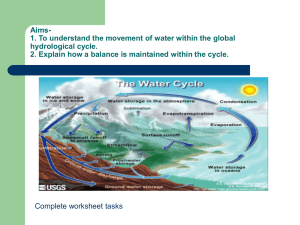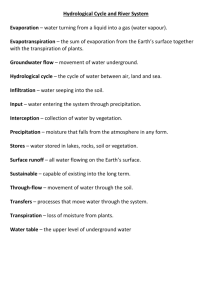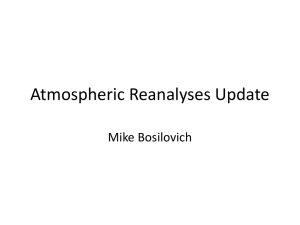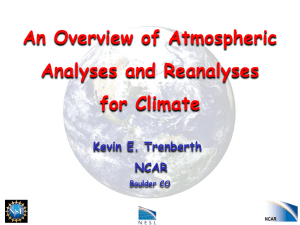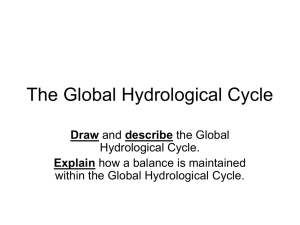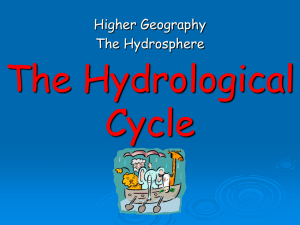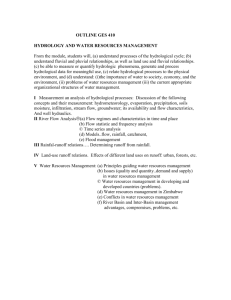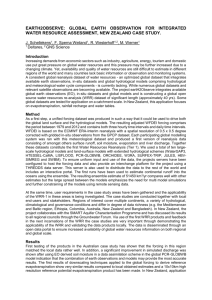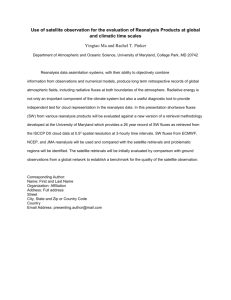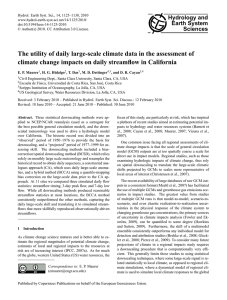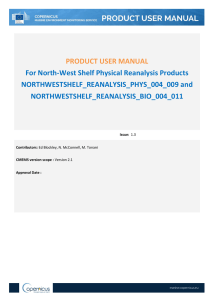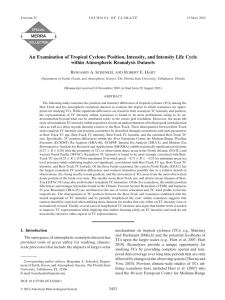Uncertainties in the quantification of the global and regional water cycle Harald Kunstmann
advertisement
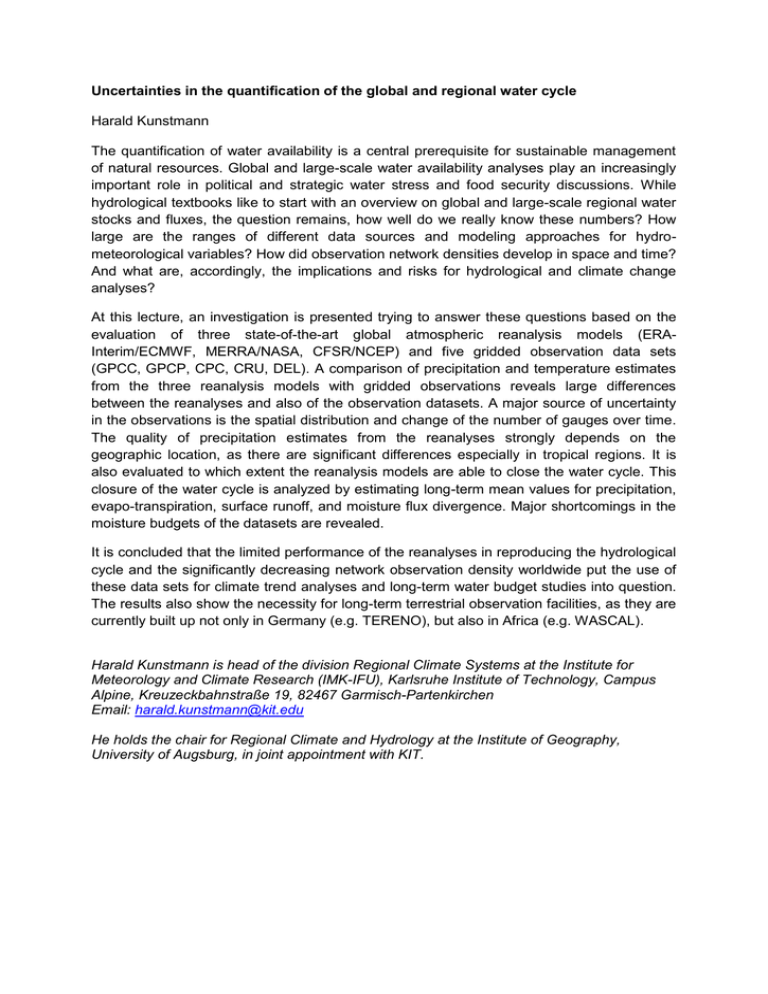
Uncertainties in the quantification of the global and regional water cycle Harald Kunstmann The quantification of water availability is a central prerequisite for sustainable management of natural resources. Global and large-scale water availability analyses play an increasingly important role in political and strategic water stress and food security discussions. While hydrological textbooks like to start with an overview on global and large-scale regional water stocks and fluxes, the question remains, how well do we really know these numbers? How large are the ranges of different data sources and modeling approaches for hydrometeorological variables? How did observation network densities develop in space and time? And what are, accordingly, the implications and risks for hydrological and climate change analyses? At this lecture, an investigation is presented trying to answer these questions based on the evaluation of three state-of-the-art global atmospheric reanalysis models (ERAInterim/ECMWF, MERRA/NASA, CFSR/NCEP) and five gridded observation data sets (GPCC, GPCP, CPC, CRU, DEL). A comparison of precipitation and temperature estimates from the three reanalysis models with gridded observations reveals large differences between the reanalyses and also of the observation datasets. A major source of uncertainty in the observations is the spatial distribution and change of the number of gauges over time. The quality of precipitation estimates from the reanalyses strongly depends on the geographic location, as there are significant differences especially in tropical regions. It is also evaluated to which extent the reanalysis models are able to close the water cycle. This closure of the water cycle is analyzed by estimating long-term mean values for precipitation, evapo-transpiration, surface runoff, and moisture flux divergence. Major shortcomings in the moisture budgets of the datasets are revealed. It is concluded that the limited performance of the reanalyses in reproducing the hydrological cycle and the significantly decreasing network observation density worldwide put the use of these data sets for climate trend analyses and long-term water budget studies into question. The results also show the necessity for long-term terrestrial observation facilities, as they are currently built up not only in Germany (e.g. TERENO), but also in Africa (e.g. WASCAL). Harald Kunstmann is head of the division Regional Climate Systems at the Institute for Meteorology and Climate Research (IMK-IFU), Karlsruhe Institute of Technology, Campus Alpine, Kreuzeckbahnstraße 19, 82467 Garmisch-Partenkirchen Email: harald.kunstmann@kit.edu He holds the chair for Regional Climate and Hydrology at the Institute of Geography, University of Augsburg, in joint appointment with KIT.
